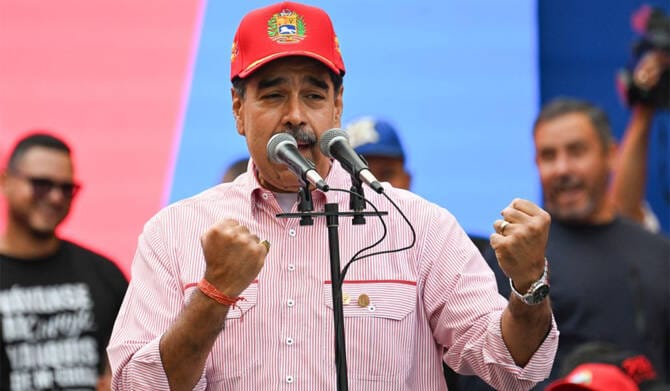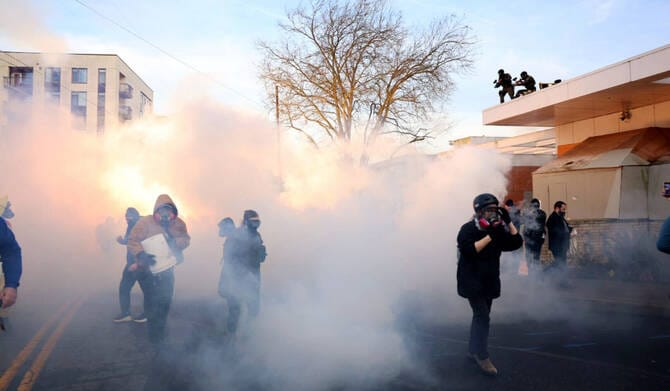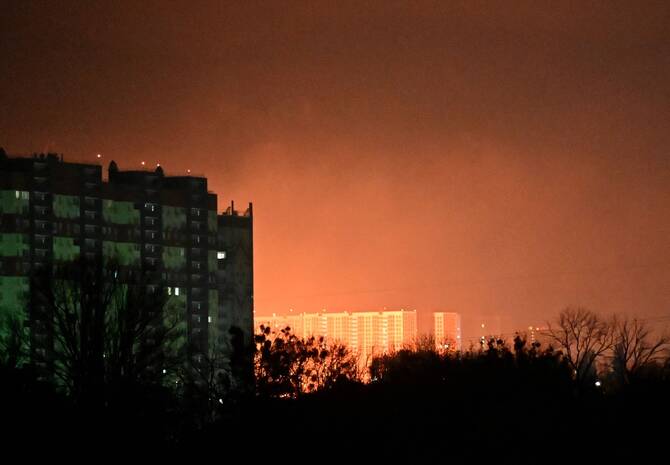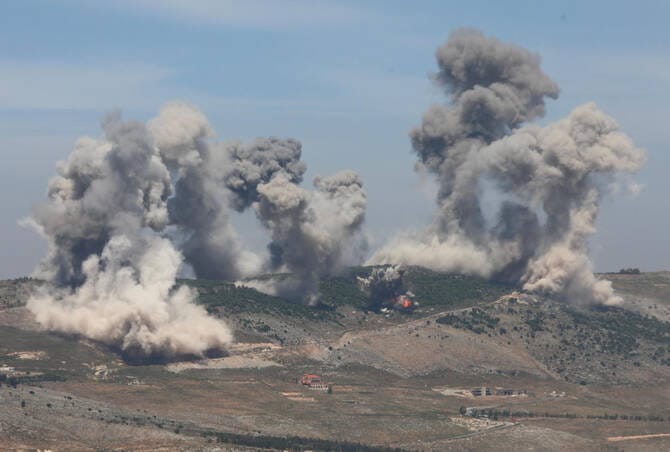Lebanon said heavy Israeli strikes on the country’s south on Thursday killed one person as the Israeli army said it struck Hezbollah “infrastructure,” the latest raids despite a fragile ceasefire.
Israel has continued to launch regular strikes on its neighbor despite the November truce which sought to halt more than a year of hostilities with the Iran-backed Hezbollah militant group including two months of full-blown war.
Lebanon’s state-run National News Agency (NNA) said “Israeli warplanes carried out a wide-scale aerial aggression on the Nabatiyeh region, launching a series of heavy raids in two waves” targeting hills and valleys in the area, located around 12 kilometers (seven miles) from the border.
The health ministry said the strikes killed one person and wounded eight others, adding that the toll was provisional.
The Israeli military said it struck “a terrorist infrastructure site” used by Hezbollah “to manage its fire and defense array.”
It said it struck Hezbollah operatives, “weapons, and tunnel shafts,” adding that “this infrastructure is part of a significant underground project that... has been rendered inoperable” by Israeli military raids.
It called the site and activities there “a blatant violation of the understanding between Israel and Lebanon.”
The NNA said “huge explosions... echoed in most areas of Nabatiyeh and the south,” causing “terror and panic” among residents, who rushed to pick up their children from school, as ambulances headed to the targeted areas.
An AFP photographer saw smoke rising from hills in the region.
“We heard a loud strike, about 10 consecutive blows,” said Jamal Sabbagh, a 29-year-old doctor who was giving schoolchildren health checks near the city of Nabatiyeh.
“Some of the children were scared and there was panic, the teachers were also frightened,” he told AFP.
The raids come a day after an Israeli strike killed a commander from Palestinian militant group Hamas in the southern city of Sidon.
Under the ceasefire agreement, Hezbollah was to pull back its fighters north of Lebanon’s Litani River, some 30 kilometers (20 miles) from the Israeli border.
Israel was to pull all its forces from Lebanon, but it has kept troops in five areas that it deems “strategic.”
The Lebanese army has been deploying in the area as the Israeli army has withdrawn and has been dismantling Hezbollah infrastructure there.
President Joseph Aoun said late last month that the Lebanese army is now deployed in more than 85 percent of the south and that the sole obstacle to full control across the frontier area was “Israel’s occupation of five border positions.”
Lebanon has called on the international community to pressure Israel to end its attacks and withdraw all its troops.
Hezbollah, long a dominant force in Lebanon, was heavily weakened in its latest war with Israel.
Lebanese authorities have vowed to implement a state monopoly on bearing arms, though Aoun has said disarming Hezbollah is a “delicate” matter that requires dialogue.
The November truce was based on a UN Security Council resolution that says Lebanese troops and United Nations peacekeepers should be the only forces in south Lebanon, and calls for the disarmament of all non-state groups.
Read More

French prosecutors stick to demand for five-year ban for Le Pen
French prosecutors demanded on Tuesday that an appeal court maintain a five-year ban on far-right leader Marine Le Pen from holding public office for a European parliament fraud, stepping up threats to her presidential ambitions. If the court upholds last year’s bombshell ruling by a lower tribunal, Le Pen

Thousands of Venezuelans march to demand Maduro’s release
Thousands of backers of Venezuela’s former leader Nicolas Maduro, ousted in a deadly US military operation a month ago, marched in Caracas on Tuesday to demand his freedom. “Venezuela needs Nicolas,” chanted the crowd, as stand-in President Delcy Rodriguez navigates a tightrope between holding on to support from Washington

Federal agents must limit tear gas for now at protests outside Portland ICE building, judge says
A judge in Oregon on Tuesday temporarily restricted federal officers from using tear gas at protests at the US Immigration and Customs Enforcement building in Portland, just days after agents launched gas at a crowd of demonstrators including young children that local officials described as peaceful. US District Judge Michael

Ukraine, Russia, US negotiators gather in UAE for peace talks
Negotiators from Ukraine, Russia and the United States were set to gather in Abu Dhabi on Wednesday, seeking to advance fraught talks on how to end the four-year war. Several rounds of diplomacy between the sides have failed to strike a deal on ending Europe’s deadliest conflict since World

